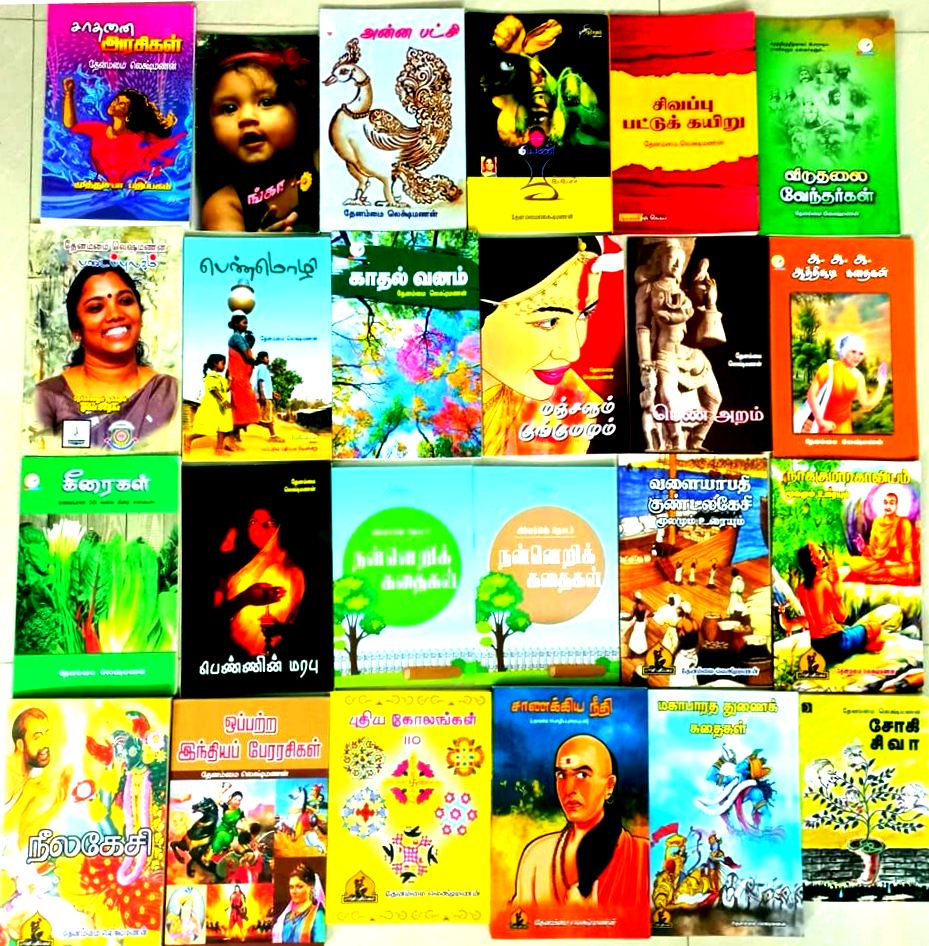ஒரு நூற்றாண்டுக்கான நகரத்தார் வாழ்வியலை அடிப்படையாகக் கொண்டவை இக்கதைகள். மத்தியதர வர்க்கத்துப் பெண்களின் மனோ நிலையைப் பிரதிபலிக்கும் செட்டிநாட்டு வட்டார வழக்குமொழியில் புனையப்பட்டவை.
தம் கணவர்களின் திருமணம் தாண்டிய உறவினை அங்கீகரித்து அப்பெண்களுக்காகப் பரிதவிப்பதும், இரண்டாம் தாரம், மூன்றாம் தாரமாய் வாக்கப்பட்டும் தன் மூத்தாளின் குழந்தைகளின் மேல் பரிவும் பாசமும் கொண்டு இயங்குவதும், சக பெண்களுக்கான இரக்கமும் கருணையும் கொண்ட பெண்கள் இக்கதை நாயகிகள். அக்கால கட்டத்தின் நியதிப்படி ருதுவாகுமுன்னே வாக்கப்பட்டு, இல்லற வாழ்வின் இன்பங்களை நுகரும் முன்னே கணவனை இழந்து விதவையானாலும் தம் மாண்பு கெடாமல் உணர்வுகளைக் கட்டுப்படுத்தி வாழ்ந்தவர்கள். சமூகத்துப் பெருமைக்காகவும், இல்லற இறையாண்மையைக் காக்கவும் தம்மை அழித்து நெறிகளால் ஒளிர்ந்தவர்கள் என்பது பொருந்தும்.
These stories are based on one centuary of nattukottai
chettiar’s life, composed in Chettinad vernacular prose that reflects the state
of mind of middle-class women. The heroines of this story are women who
recognize their husbands' extra-marital relationships and feel sorry for them,
who are chosen as second and third wives and act with compassion and affection
on the children of their eldest wives. According to the norms of that time,
they were married before puberty and lived in control of their feelings without
losing their dignity even if they lost their husbands and became widows before
enjoying the pleasures of domestic life. It is fitting that those enlightened
by morals destroy themselves for the sake of community pride and the
preservation of domestic sovereignty.


கருத்துகள் இல்லை:
கருத்துரையிடுக
சும்மா ( பத்தி ) உங்க கருத்தையும் பதிவு செய்ங்க :)